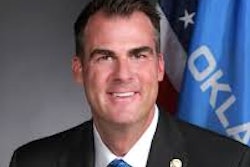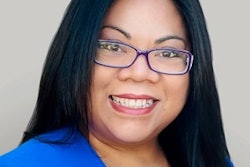Before embarking on a tour of historically Black colleges and universities, Dr. Makaziwe Phumla Mandela, daughter of South African President Nelson Mandela, stopped by the offices of Black Issues in Higher Education to discuss a wide range of issues facing higher education in the new South Africa.
Since 1994, Mandela, an anthropologist and educator, has been the affirmative action and equal opportunity advisor for one of South Africa’s largest universities, the University of the Witwatersrand. Before that, she worked with the African Academy of Sciences, a non-governmental organization based in Nairobi, Kenya.
Mandela was in the United States as a Fulbright 50th Anniversary Distinguished Fellow. During her month-long visit, The College Fund/UNCF hosted Mandela as she toured 14 of the organization’s member colleges and universities.
Educated both in the United States and in South Africa, Mandela earned a master’s degree in sociology and a doctorate in anthropology from the University of Massachusetts at Amherst. She earned a bachelor’s degree n social work from the University of Fort Hare in Alice, South Africa. A wife and mother of four children, Mandela lives with her family Johannesburg.
She has written and spoken extensively on the role of women and girls in society. In this interview, she discussed education reform post-apartheid South Africa, and the need to critically evaluate African history.
How would you differentiate what you understand affirmative action to mean in the United States compared to South Africa?
I don’t really see any differences per se. I think the difference would be in the historical context of both countries. Within South Africa the debate is different. Here [in the United States] Blacks, Hispanics and people of color are in the minority. In South Africa they are in the majority and people would argue that because of that you don’t have to have affirmative action. But the arguments for and against affirmative action are the same.
Is the emphasis in post-apartheid South Africa on assuring that whites will have equal participation in higher education or sustain some level of influence?
I don’t think that there is pressure or an emphasis that you have to assure whites. The strategy of the ANC (African National Congress) is to build a new nation with a focus on reconciliation. Some people may interpret it as assuring [whites] that they have full participation, but I think that in South Africa, everybody accepts that Blacks and whites will have equal footing and certain things will be done. Whether you call that affirmative action or corrective action, it’s basically to correct the inequities and imbalances of the past.
I think that everybody accepts that something has to be done, but we are not of the same voice about how we should do it or that affirmative action is the right way to do it. There are many who argue that affirmative action hasn’t worked anywhere in the world; it hasn’t worked in the United States. Actually, we shouldn’t even talk about affirmative action in terms of race, but in terms of financial need.
Will the facilities at historically Black institutions be upgraded to be equal with white schools?
There need to be choices, but what those choices will be … the ministry [of Education] has made a commitment to fund more of the historically Black universities like Fort Hare or the University of the North much more than the historically white institutions. But the historically white universities have a history of being well funded and well funded by the private sector, so we’ll see what happens.
The commitment has to be based on objectives — what do you want historically Black universities to be? Do you want them to be like one of the Ivy Leagues of South Africa? If so, it’s going to take them a long time because they don’t have a history or culture of research … they don’t have the staff who can produce research that is competitive or internationally recognized.
These are the issues that face them — do [Black universities] become teaching universities or research universities? Because of the student population that they have, I don’t think that they can aim to be research universities. I think that they can aim to be excellent teaching universities producing excellent Black graduates.
That’s the path Afrikaans-speaking universities took. They are only lately doing research — in fact, they have caught up to the other universities. So I think it would be wrong for Black universities to say that they are going to be research universities. I don’t think that is where the emphasis is. But there is another political debate — [Black universities] don’t want to be seen as second-class universities. I think it’s a tall order for them.
What plans are underway to help academically disadvantaged students overcome decades of inadequate public school education? Whose responsibility should it be to bridge that gap?
The emphasis now is on K-12 — primary and secondary education in South Africa. You can’t bridge that gap without looking at upgrading the qualifications of the teachers. There have to be twin forces — working with the teachers and working with the schools.
What challenges have you faced or expect to confront as an African woman in leadership in South Africa, and in particular in higher education?
You don’t tend to see women in the high positions whether it be at historically white or historically Black institutions. There aren’t real visible obstacles that prevent one from getting certain positions. We have a different structure. First you have to be a good academic to get into top administration. It’s part of the tradition to come through the academic ranks.
When Dr. Mamphele Ramphele was recently appointed the first Black female vice-chancellor of the University of Cape Town, the higher education community was divided. Some saw the appointment as a step toward South Africa’s democratization of formerly white-dominated universities and others saw it as an “affirmative action appointment.” How should it have been viewed?
People can perceive her appointment the way that they want. I think that we have to wait and see what Mamphele will do. She is not in the position yet. There is much debate about who she is and what she is there for. She doesn’t see her selection as an affirmative action appointment at all.
No matter how good you are, Blacks are not going to escape the fact that they are viewed as an affirmative action [hire]. People interpret wrongly that affirmative action means lesser than or inferior, but I feel that the stigma was in South Africa long before affirmative action came into play. As long as there are racial divisions and racial inequities, you are going to have this perception.
Black people have to make a choice about whether they are going to let the labels bother them. They have to disprove them by performing at optimum level. I don’t bother myself with whether I’m an affirmative action appointment or not. I know that I have the qualifications and I was hired to do the job and will do the job to the best of my ability. It’s a choice that we all have to make.
In the United States, part of what has hampered efforts to create racial diversity in the classroom and improve educational access, is a lack of information or misinformation about Black history and culture in our schools. Are South African schools facing similar challenges?
Yes, because all of us have been taught from a European perspective. For me, the issue isn’t about just bringing the culture to the classroom, but it’s also about critically examining our culture. If you are going to glorify history and say that life began in Africa so that Africans can then have primacy over European culture, to me that’s not sensible. The question can then be asked, what has that culture contributed to the world? Why are we such a backward continent?
Even if we bring in the African culture, the African perspective, we have to look at it critically, we have to look at the pros and cons. There is a tendency to blame colonialism or apartheid for Africa’s problems, but forgetting that we somehow contributed to the situation. That’s not taught in class.
Most of us who argue for an Afrocentric view want to glorify Africa and not talk about the negatives that we contributed. We need a balanced evaluation of our history and culture. Doing that will move us forward.
The history books are being revised in South Africa for primary and secondary schools, but I don’t think we should fool ourselves. Every generation will write history from its own perspective. But what we have to teach our children is that history should be critically evaluated and interpreted in terms of their own understanding.
You earned a degree from the University of Massachusetts at Amherst. How is a terminal degree from the United States regarded in South Africa compared with one from say the United Kingdom or France?
A degree from America is not respected and a degree from the U.K. or Europe is. The feeling within South Africa is that the U.S. higher education system is easy and they give away degrees. Even if you come from Harvard you’re not highly regarded. You have to prove yourself.
South Africa has been a British colony and there are still strong ties to Britain. Therefore, schools in Britain are seen in a much better light than American schools,
Are there plans to restructure the curriculum in terms of putting an emphasis on either training workers for the 21st century or developing people who can do applied research?
I think universities in South Africa would argue that they are doing both … except the technikons [technical, career-oriented training schools], which are training people directly for work. The ANC, in its white paper on education, said … you have to train people for the world of work. The institutions will argue that that is too vocational, The universities say they want to do a variety of things within their institutions.
The National Commission on Higher Education is set up to review and restructure higher education. They are looking for a much broader process … more articulation between the institutions so that people can move from the practically-oriented to the more theoretical or philosophical orientation or vice versa. This would allow people to enter higher education at different levels and matriculate based on a variety of experiences, not just on a high school diploma.
The end to South Africa’s apartheid regime has brought a flood of entrepreneurial and educational interest from abroad. How are these newcomers being perceived by South Africans?
South African people are very skeptical. South African people know what they want. In many sectors people are tired of it. They want to develop things themselves. Negative attitudes are developing. They think that African Americans and Africans from the subcontinent are coming in to dictate to them and they don’t want to be dictated to.
Who are some of your heroes and heroes. Who are the people who have really inspired you?
There are a number of people ranging from my two high school teachers … my own mum, my dad … there are a number of Americans who have served as my mentors … there are a number of African leaders who I admire a lot like Kwame Nkrumah ….
I basically am a true Africanist and I don’t have to apologize for that. I believe in Africa and I believe in African people. I strongly believe that you can only succeed if you help and support each other.
COPYRIGHT 1996 Cox, Matthews & Associates
COPYRIGHT 2004 Gale Group
© Copyright 2005 by DiverseEducation.com















